3 octobre 2010
Life after Graduation
 Life after Graduation: The Role of Employment and Tracking Systems for Continuous Curricula Development and Quality Enhancement in Higher Education, UNESCO CEPES Conference, Université Lucian Blaga de Sibiu, Roumanie, 19-21 may 2011.
Life after Graduation: The Role of Employment and Tracking Systems for Continuous Curricula Development and Quality Enhancement in Higher Education, UNESCO CEPES Conference, Université Lucian Blaga de Sibiu, Roumanie, 19-21 may 2011.The UNESCO European Centre for Higher Education (CEPES) and “Lucian Blaga” University of Sibiu are organizing the International Conference with the theme:
Life after graduation: The Role of Graduate Employment and Tracking Systems for Continuous Curricula Development and Quality Enhancement in Higher Education to be held in Sibiu, Romania - May 19-21, 2011.
The international conference aims to look at a cross-section of successful graduate tracking systems from various regions of the world and at different types of institutions, and to share with HEIs in South East Europe how they are used at institutional level to contribute to short and medium term quality enhancement strategies. The conference is inviting worldwide experts on graduate employability and representatives of “good practice” institutions with well-established tracking systems.
The conference is a joint initiative of The UNESCO European Centre for Higher Education (CEPES) and “Lucian Blaga” University of Sibiu -The Chair in Quality Management of Higher Education and Lifelong Learning and The Quality Research Centre. We look forward to welcoming you in Sibiu!
The UNESCO European Centre for Higher Education and "Lucian Blaga" University of Sibiu have jointly initiated a project entitled: "Life after graduation: The Role of Graduate Employment and Tracking Systems for Continuous Curricula Development and Quality Enhancement in Higher Education". We would like to hear your opinions on this topic as graduates, returning students, professors. All opinions expressed will be treated anonymously unless you indicate otherwise. Thank you for your valuable input. http://graduate-employability-unesco-lbus.blogspot.com/.
The advent of mass higher education during the past decade has opened up opportunities for more people than ever before to benefit from post-secondary learning in order to contribute meaningfully to knowledge societies around the world. With this increasing demand for higher education has come an increase in supply, with traditional higher education institutions enrolling new students, establishing new and diverse study programmes, courses and modules, as well as the creation of new learning pathways and study modes.
There is now increasingly a need to look beyond the internal quality environments in Higher Education Institutions (HEIs) and to take seriously not only student and learning quality, but the quality of graduates, their ability to make a qualitative contribution to society, and to their personal professional fulfillment. Following the careers and choices of graduates provides HEIs with vitally important feedback and input to the continuous development of curricula across all disciplines, feedback which is equally as essential for any institutional quality assurance process as student and internal stakeholder tracking. It is just as important for HEIs as part of their whole institutional QA processes to maintain contact with and get feedback from their graduates of history, medicine, engineering, education, drama, languages, etc., the experiences of whom, in whatever career paths they eventually follow, provides an institution with an important (yet often overlooked) second or external dimension of data on which to steer its institutional short, medium and long term strategies.
 Papers are invited on the following topics:
Papers are invited on the following topics:1. Graduate Employability in the Arts/Social Sciences/Natural Sciences, etc.
2. Diverse Models of Schooling for Employment in developed and transitioning economies (including the gate-keeping role of academic credentials in achieving “gainful employment” and their (inter)national transferability).
3. Knowledge, Skills and Competencies for the new national and international labour markets;
4. Alumni Organizations – an untapped resource for tracking graduates?
5. Careers Guidance and Counsellors: a moral obligation for graduate success?
6. Managing Graduate data for Quality assurance purposes;
7. The vital link between graduate tracking and lifelong-learning;
8. Using graduate-tracking data for curricula development;
9. Institutional and employer partnerships for curricula development/internships/graduate recruitment/lifelong learning programs:
10. Graduate voices: How was it for you, transitioning from school to career?
11. HEIs are employers too: New skills and expectations for successful careers in academia
12. Enhancing careers through postgraduate studies
13. Continuing professional education or learning on the job?
14. The impact of labour market trends and labour market success of graduates on college-entry admission and programs
A selection of articles will be published in the Conference Proceedings under the auspices of UNESCO. Additional accepted articles will be included in the Management of Sustainable Development Journal of The Quality Research Centre, indexed in the Copernicus international database.
Commentaires


/https%3A%2F%2Fp1.storage.canalblog.com%2F20%2F55%2F1154600%2F122555108.png)
/https%3A%2F%2Fencrypted-tbn2.gstatic.com%2Fimages%3Fq%3Dtbn%3AANd9GcTi5Hkm0uJx8RuXLdIN4NSGeutjLR0NZnG3tTJBq9IYhTpD2Hdf5SvxmA)
/https%3A%2F%2Fprofilepics.canalblog.com%2Fprofilepics%2F1%2F0%2F1076071.jpg)